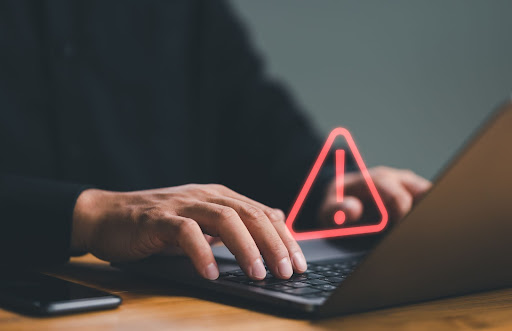Is a breach of privacy considered consumer harassment?
Consumer Harassment - July 24, 2023
A consumer data breach can often lead consumers vulnerable to harassment and cyber fraud leading to identity theft and monetary loss. Federal regulators and some states provide guidance and protection on consumer data protection, but often, consumers must fend for themselves regarding data breach legal issues.
Legal issues behind data breaches
Currently, the United States does not have a federal law that explicitly establishes a standard for data privacy in the United States. Certain states, including California, Nevada, and New York, with more to follow, have passed state laws that require general standards for data privacy and how consumers can address breaches to their privacy.
Further, some federal regulators like the U.S. Federal Trade Commission will provide guidance on data breach legal consequences and charge civil penalties on companies with poor privacy protections.
Typically, when a company suffers a consumer data breach, existing state law and industry standards impose some form of notification to affected consumers. Companies will publish a press release and contact consumers individually. Once that occurs, the company will commence an investigation into the breach.
Companies do not disclose much to the public or their consumers about the breach. Individual consumers whose data was breached will usually commence some legal action against the company, often in the form of a class action lawsuit. Civil actions often take years to address and can provide some compensation to victims.
What is consumer harassment, and how is it related to data breaches?
Consumer harassment can take many forms, especially in the context of data breaches. This occurs when a consumer’s personal information, including name, contact information, password information, and other private information is exposed to fraudulent actors on the internet.
Often, consumer harassment includes some of the following:
- Excessive spamming and phishing (use of email and text to send malware to consumers)
- Unauthorized access to specific media devices like cameras, microphones, and doorbell monitors
- Consumer identity theft
- Other fraudulent behavior
How can consumers prevent data breaches?
Consumers can address numerous entry points to their data, but no digital protection can protect every aspect of a consumer’s data. In August 2022, the U.S. Consumer Financial Protection Bureau published a circular urging companies to take more steps to protect consumer data.
Although the circular provided guidance for companies on data breach legal issues, much of the advice can be adopted by consumers now utilizing many available web services.
Utilizing multi-factor identification
Multi-factor identification is a tool that allows a consumer to utilize a second or third identification tool when logging on to a website. Typically, a consumer will enter their password and be prompted to enter a code sent to their phone or email to confirm their identity. Many companies now allow consumers to utilize multi-factor identification when logging into websites. However, many web services still do not require multi-factor identification when logging in to their site.
Managing password creation and protection
The creation and management of passwords have been a sore spot for consumer advocates and companies alike. Companies often require consumers to utilize unique characters, numbers, and letter capitalization when creating passwords. Consumers may also want to use password management tools like Bitwarden or 1Password to generate and store complex passwords.
Update software regularly
Consumers should regularly update any software on their devices. Periodically, companies issue updates on their websites or mobile applications. If a consumer is prompted to perform an update, the consumer should conduct the update as directed. Failure to maintain regular updates can make outdated software vulnerable to cyber-attacks and data breaches.
Suspect your data has been compromised?
If you or a loved one has recently had their data privacy breached and you believe you have been or are currently experiencing digital harassment, please get in touch with the Chicago consumer harassment attorneys from Horwitz, Horwitz & Associates for a free consultation today. Please call (800) 985-1819.



